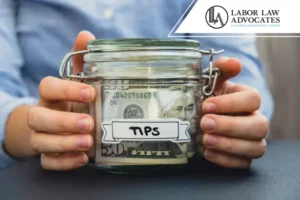California — In one of the largest labor actions in University of California history, over 86,000 employees, including nurses, healthcare professionals, and campus workers, are preparing to participate in a UC workers’ strike on November 17–18. The planned two-day protest spans 18 UC health facilities statewide, including UCSF, UC Berkeley, and Benioff Children’s Hospital in Oakland.
Workers claim the university continues to neglect its lowest-paid employees while rewarding top administrators. UC officials, however, argue that the unions’ wage and benefit demands are financially unsustainable and would threaten the university’s mission of education and research.
Strike Details: Wages, Staffing, and Cost-of-Living Pressures
According to union representatives from AFSCME Local 3299, UPTE-CWA Local 9119, and the California Nurses Association, the UC workers’ strike reflects growing frustration among employees. Workers are voicing concerns about stagnant wages and the rising cost of living across California.
AFSCME represents approximately 40,000 service and patient care technical workers within the UC system. The union states that many employees have been priced out of their own communities due to wage stagnation and inflation.
Union leaders report that over a third of UC service and technical workers have left within three years. They allege that executives receive large raises and housing perks, while staff struggle to meet their basic needs. UC leaders deny these claims, asserting that they have negotiated in good faith and offered competitive wage and benefit packages.
Workers’ Rights and Protections in California
Under California labor law, employees participating in organized strikes are protected under the California Public Employment Relations Board (PERB) and the National Labor Relations Act (NLRA). However, certain regulations and responsibilities apply:
- Collective Bargaining Rights: Workers have the legal right to organize, bargain collectively, and engage in strikes to negotiate better working conditions.
- Unfair Labor Practices: Employers are prohibited from retaliating against employees for their union involvement or participation in lawful strikes.
- Essential Services Limitation: Workers in critical healthcare or safety roles may face restrictions during strikes to prevent risks to public health and safety.
- Wage and Benefit Disputes: Unions may file complaints with PERB if they believe the employer failed to negotiate in good faith or violated existing agreements.
Fighting for Fair Pay and Fair Treatment Across California
If you believe your employer has violated your labor rights—through unfair treatment, retaliation, or wage violations—our employment lawyers are here to help. We provide free consultations to help you understand your rights under California law and guide you through the process of filing claims or negotiating fair treatment.
Contact us today to protect your rights and ensure your voice is heard. Your work deserves respect, and your future deserves fair compensation.




